
NEWS & EVENTS
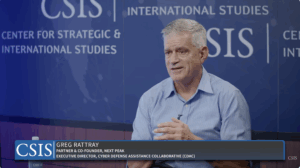
CSIS Cyber Leaders Series: How Can Ukraine Win the Cyber War? A Conversation with Dr. Greg Rattray
What is it like to simultaneously fight a cyber war and a shooting war? How does Russia fight in the cyber domain, and how was Ukraine so resilient? What lessons can the United States and allies learn from that resilience? Next Peak’s Greg Rattray joins CSIS host, Emily Harding, to speak on lessons learned from the Cyber Defense Assistance Collaborative.
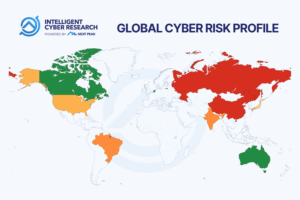
Next Peak’s Intelligent Cyber Research offers new Geo Cyber Risk Index
Next Peak’s Intelligent Cyber Research (ICR), inspired by co-founder Greg Rattray’s vision to merge geopolitical intelligence with cyber insight, is ready to empower organizations to make informed, forward-looking decisions. On September 19, 2025 Next Peak officially launched ICR, announcing a series of offerings designed to help global organizations secure against geopolitical cyber risks and uplift their strategic thinking.

Case Study of Cyber-Resilience in Wartime: Lessons from Ukraine’s Energy Sector
On January 25th, 2024, a major Distributed Denial-of-Service (DDoS) attack temporarily disabled the digital infrastructure of Naftogaz Group, Ukraine’s largest state-owned energy company. On the same day, an attack took other major companies offline—including the national postal service provider Ukrposhta, transport safety agency DSBT, and Ukrainian state railway Ukrazaliznytsia. Nevertheless, Ukrainian companies were able to restore access to their digital infrastructure rapidly, reaching full access within a few days.
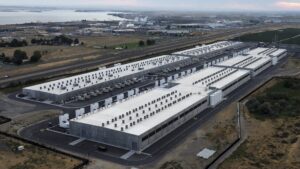
The Neglected Security Gaps in the Global Race for Sovereign AI
| Written By Seungmin (Helen) Lee for World Politics Review |
In recent years, artificial intelligence has emerged as the most significant driver of global data center demand. Four tech giants—Amazon Web Services, Google, Meta and Microsoft—currently control 42 percent of U.S. data center capacity, and these companies spent $155 billion on AI infrastructure in the first half of 2025.
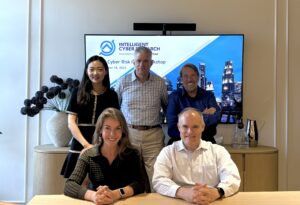
Next Peak Launches “Intelligent Cyber Research”
For the last decade, Next Peak co-founder Greg Rattray has been developing an idea around his passion for the intersection of geopolitics and cyber. Today, as geopolitical risks are increasing from emerging wars, domestic extremism, and erosion of global institutions, Next Peak officially launches a new branch: Intelligent Cyber Research (ICR)—finally bringing Greg’s idea into fruition.
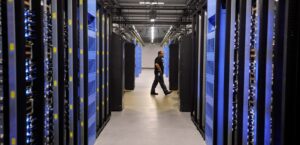
Securing the Backbone of Artificial Intelligence: Protecting Data Centers
| By Seungmin (Helen) Lee | With the explosion in demand for artificial intelligence (AI) data centers to support the exponential integration of AI into businesses, operations, governments, and daily lives, the cybersecurity of AI data centers is becoming increasingly important. Given that AI data centers host AI models, weights, and training data, these centers face an expanded set of threats—particularly related to hardware, model, and geopolitical security. This report recommends a new framework to develop more cyber-secure AI data centers.

BLOG & PUBLICATIONS

Korea’s Evolving AI Regulations
| By Seungmin (Helen) Lee | As AI innovation and development took off in South Korea, so did unethical and unreliable use of the technology. The country’s AI legal framework that passed in December 2024 was designed to place guardrails around the future of AI. However, its impact is yet to be determined.

Common Good Cyber Interviews CDAC Team
We interviewed Ian Pelekis and Seungmin (Helen) Lee from Next Peak, part of the Cyber Defense Assistance Collaborative (CDAC). CDAC is a group of leading cybersecurity companies, former U.S. government officials, and top U.S. cyber defense leaders who came together to provide operational cyber defense assistance to Ukraine during the 2022 Russian invasion. Currently, CDAC works in collaboration with participating private sector cybersecurity organizations to meet cyber defense aid requests from Ukrainian government ministries and state-owned organizations.

Cyber Defense Assistance And Ukraine: Lessons And Moving Forward
| By Gregory Rattray and Seungmin (Helen) Lee | In an era of international instability, the safety and resiliency of our digital existence faces deep challenges. Such instability has undermined the ability of governments to counter aggression in cyberspace. In this growing vacuum, the conduct of cyber defense assistance by the private sector will both change and grow in increasing importance.

The Opportunity for South Korea-US Cooperation in AI Hardware and Energy Needs
| Written By Seungmin (Helen) Lee and Michelle J. Lee | Nations fueled by artificial intelligence (AI) nationalism – the sentiment that a nation must develop its own technology to serve its interests – are racing to achieve AI supremacy. Undoubtedly, the United States and China are at the forefront, adding yet another battleground to their increasingly tense relationship.

AI and Elections: Lessons From South Korea
| Written By Seungmin (Helen) Lee | The country was able to limit the impact of AI-generated deepfakes during its recent National Assembly elections. What can other countries learn from its experience? On April 10, South Korea held its 22nd National Assembly elections, which resulted in the Democratic Party (DP) winning 175 out of 300 seats and the ruling People Power Party (PPP) winning 108. The voter turnout of 67 percent was the highest in 32 years.

Revisiting the 2014 Korea Hydro and Nuclear Power Hack: Lessons Learned for South Korean Cybersecurity
| Written By Seungmin (Helen) Lee | In December 2014, the Democratic People’s Republic of Korea (DPRK or North Korea) cyber group Kimsuky conducted an attack on the Republic of Korea’s (ROK or South Korea) Korea Hydro and Nuclear Power (KHNP), leaking personal information of 10,000 employees, reactor blueprints, manuals, electricity charts, radiation methods and more.

BLOG & PUBLICATIONS

Korea’s Evolving AI Regulations
| By Seungmin (Helen) Lee | As AI innovation and development took off in South Korea, so did unethical and unreliable use of the technology. The country’s AI legal framework that passed in December 2024 was designed to place guardrails around the future of AI. However, its impact is yet to be determined.

Common Good Cyber Interviews CDAC Team
We interviewed Ian Pelekis and Seungmin (Helen) Lee from Next Peak, part of the Cyber Defense Assistance Collaborative (CDAC). CDAC is a group of leading cybersecurity companies, former U.S. government officials, and top U.S. cyber defense leaders who came together to provide operational cyber defense assistance to Ukraine during the 2022 Russian invasion. Currently, CDAC works in collaboration with participating private sector cybersecurity organizations to meet cyber defense aid requests from Ukrainian government ministries and state-owned organizations.

Cyber Defense Assistance And Ukraine: Lessons And Moving Forward
| By Gregory Rattray and Seungmin (Helen) Lee | In an era of international instability, the safety and resiliency of our digital existence faces deep challenges. Such instability has undermined the ability of governments to counter aggression in cyberspace. In this growing vacuum, the conduct of cyber defense assistance by the private sector will both change and grow in increasing importance.

The Opportunity for South Korea-US Cooperation in AI Hardware and Energy Needs
| Written By Seungmin (Helen) Lee and Michelle J. Lee | Nations fueled by artificial intelligence (AI) nationalism – the sentiment that a nation must develop its own technology to serve its interests – are racing to achieve AI supremacy. Undoubtedly, the United States and China are at the forefront, adding yet another battleground to their increasingly tense relationship.

AI and Elections: Lessons From South Korea
| Written By Seungmin (Helen) Lee | The country was able to limit the impact of AI-generated deepfakes during its recent National Assembly elections. What can other countries learn from its experience? On April 10, South Korea held its 22nd National Assembly elections, which resulted in the Democratic Party (DP) winning 175 out of 300 seats and the ruling People Power Party (PPP) winning 108. The voter turnout of 67 percent was the highest in 32 years.

Revisiting the 2014 Korea Hydro and Nuclear Power Hack: Lessons Learned for South Korean Cybersecurity
| Written By Seungmin (Helen) Lee | In December 2014, the Democratic People’s Republic of Korea (DPRK or North Korea) cyber group Kimsuky conducted an attack on the Republic of Korea’s (ROK or South Korea) Korea Hydro and Nuclear Power (KHNP), leaking personal information of 10,000 employees, reactor blueprints, manuals, electricity charts, radiation methods and more.